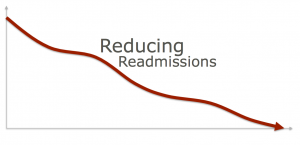The RBC Challenge: Program Developments to Improve Post Discharge Outcomes
For the last two decades there has been an increased focus on fast-track protocols to hasten discharge after heart surgery and other common procedures. Protocols include rapid extubation, rapid chest tube removal, and early mobilization to expedite patient discharge. This was driven by several factors, but notably by capitated reimbursement mechanisms. This helped minimize hospital costs (and thus profit), which was a primary driver, but ultimately led to costs shifting to the outpatient setting.
In a study from Lazar and colleagues at Boston University, patient outcomes after heart surgery in 1990 were compared to those nearly a decade later, when fast tracking protocols were firmly in place. In 1998, patients were older and sicker prior to surgery as compared to those in 1990, yet they spent less time receiving ventilatory support and had a far shorter length of stay. However, fewer 1998 patients (56.7% vs 97.0%) were discharged home, many more 1998 patients (43.3% vs 2.9%) were discharged to extended care facilities, and readmission for the more contemporary patients grew tenfold.
With the Affordable Care Act, the Centers for Medicare & Medicaid Services (CMS) will be implementing a number of projects that target reducing hospital readmissions for certain diagnostic categories, with heart surgery a top five priority. Among these changes, penalties for programs with high readmission rates will be implemented to incentivize preventing readmission and the consequent cost shifting.
Though it’s easy to look in hindsight and interpret these trends to early discharge as a mistake, a lot was discovered during this era. In particular, heart surgery programs became very adept at developing and implementing protocols and programs to meet economic goals. Now that the goals have changed, these programs will need to be tailored to maximize long-term recovery to keep patients from returning to the hospital after discharge.
Many programs are already available to maximize recovery during the hospital stay to minimize potential for complications after heart surgery. Clear Catheter Systems is introducing a new program focused on decreasing the occurrence of retained blood complex (RBC), which is a common cause of delayed recovery, assisted discharges, and readmissions. The RBC Challenge is a trial program being offered to heart surgery facilities interested in studying the rate of occurrence and impact of RBC in their facilities with the goal of reducing complications, need for assisted discharge, and readmissions. By decreasing the occurrence of RBC, heart surgery facilities may quickly recoup investments made in the prevention program, and potentially increase revenue. For more information on the program, please contact us.
Harold L. Lazar, MD, Carmel A. Fitzgerald, RN, MS, Tazeen Ahmad, AB, Yusheng Bao, MD, Theodore Colton, ScD, Oz M. Shapira, MD, Richard J. Shemin, MD . Early discharge after coronary artery bypass graft surgery: Are patients really going home earlier? J Thorac Cardiovasc Surg 2001;121:943-950